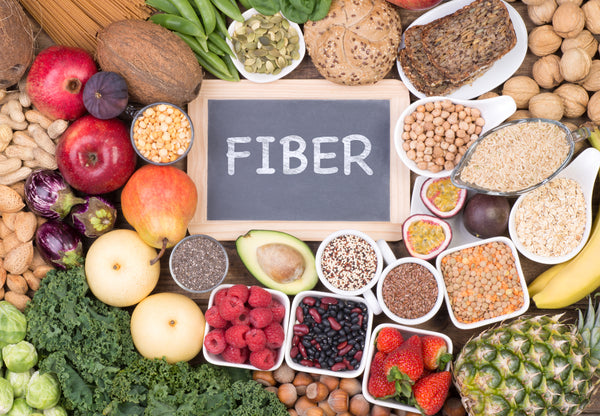The Metabolism
This post may link you to products or services with which we have an affiliate relationship. Please click here to read our disclosure for more information.
What Exactly is Metabolism?
Metabolism is the complex biochemical process of transforming the nutrients or the foods we consume into energy so our bodies can use it to fuel bodily functions and movement. This energy is absorbed into the body, then transformed and utilized by organs, tissues, and cells, and ultimately expelled as waste through elimination processes such as urination, sweating and excrement. In essence, the metabolic processes are responsible for maintaining normal bodily functions, including the use of food for fuel, converting unused energy into fat reserves, and breaking down toxins so they can be removed from the body.
While the metabolism process is often associated with weight loss or gain by most people, it goes so much further beyond that. The speed of an individual's metabolism affects wellness on many levels, from athletic performance to mental clarity and general well-being. Understanding how the body uses these nutrients is key to optimizing health.
The Difference Between a Slow Metabolism and a Fast Metabolism
The difference between a slow and a fast metabolism lies in how quickly the body is able to absorb, transform, and eliminate the nutrients it takes in. For example, people with slower metabolisms take longer to absorb and use their food as energy. Consequently, it takes more time to do the same job resulting in difficulty utilization of the energy correctly. On the other hand, people with faster metabolisms process food more quickly, enabling their bodies to convert more nutrient calories into energy quickly and more efficiently. Furthermore, people with faster metabolisms may also burn more calories than those with slower metabolisms, meaning that these individuals need to consume higher amounts of food to sustain themselves throughout the day.
What Can Possibly Affect Our Metabolism?
Many aspects of life can affect our metabolism, such as diet, exercise, lifestyle choices, genetics, hormones, and certain medical conditions.
Another impossible-to-change factor that can affect our metabolism is age. This enemy causes our bodies to break down over time naturally, and consequently, it becomes difficult to generate energy like we used to when we were much younger. Similarly, hormones like thyroid hormone disrupt metabolism; an imbalance in the hormone levels could lead to weight gain, fatigue or difficulty concentrating due to the poor regulation of metabolism.
Also, suppose you lead an inactive lifestyle and spend most of your day sitting down. In that case, you will likely burn fewer calories compared to someone who exercises regularly.
Ways to Improve your Metabolism

Fortunately, there are many ways one can take to increase their metabolic rate.
-
Increase physical activity. Activities such as brisk walking, aerobics, jogging and cycling can help jumpstart your metabolism.
-
Try getting enough sleep every night, as this is important for energizing the body and helping with healthy digestion.
-
Eat a healthy breakfast that includes protein, fibre and healthy fats, which can help keep metabolism regulated.
-
Include spices like turmeric in hot drinks or meals as it will help to promote thermogenesis in the body, which is a process that can increase calorie burn and spike one's metabolic rate.
-
Try eating smaller meals using a small plate and eating more frequently throughout the day, as this trick will help to boost metabolism. For example, instead of three large meals throughout the day, aim to have five or six smaller portions but nutrient-dense meals.
-
Fluctuating meal times can also be helpful; each time you eat, your body releases energy hormones - try changing your meal times from day to day so that those hormones continue running at full speed!
-
Finally, limiting simple sugars and processed grains is also important in boosting the metabolic process.
What Foods Can Help Boost your Metabolism?
Eating the right foods may not always be easy for everyone, but knowing them will certainly help you to make better decisions and plan your diet more efficiently. Hence, here are some of the best foods that will help speed up your metabolism and burn fat more efficiently.
First up are slean protein sources like chicken, fish, milk, yoghurt, and eggs. Not only does lean protein increase your metabolic rate, but it also helps build muscle mass. Muscle tissue requires more energy than fat tissue to maintain itself. So, the more muscle you have, the higher your metabolic rate will be.
Next on the list are whole grains. Adding whole-grain carbohydrates to your diet can help increase your metabolism through the thermogenic effect of food. The thermogenic effect of food is a process in which certain types of food require additional energy for digestion—thus raising the number of calories burnt during digestion. Whole grains like quinoa, brown rice, oatmeal, couscous, and bulgur are all high in the thermogenic effect of food value, making them great additions to a healthy diet that boosts metabolism.
Water is another indispensable great way to speed up metabolism naturally. Drinking water not only keeps your body hydrated but also helps you digest food better, thus burning more calories. Water also does an amazing job of flushing toxins and stimulating lymphatic drainage as it further increases metabolic rate and improves circulation overall.
Lastly, do not forget about fruits and vegetables! Fruits and vegetables are excellent sources of dietary fibre, which can help increase your metabolism.
What Exactly is Metabolism?
Furthermore, eating a diet rich in fruits and vegetables can also provide crucial vitamins, minerals, and antioxidants that can aid digestion. Plus, some fruits and veggies contain compounds like caffeine that have been known to boost the metabolic rate.Note
These foods will also help keep your metabolism up and digestion in better shape:-
Chia seeds
-
Nuts
-
Citrus fruits such as oranges and grapefruits
-
Whole-wheat bread
-
Spicy peppers
-
Green tea
-
Avocado
Tip
Many fruits and vegetables are low-calorie, so you can enjoy them guilt-free!


